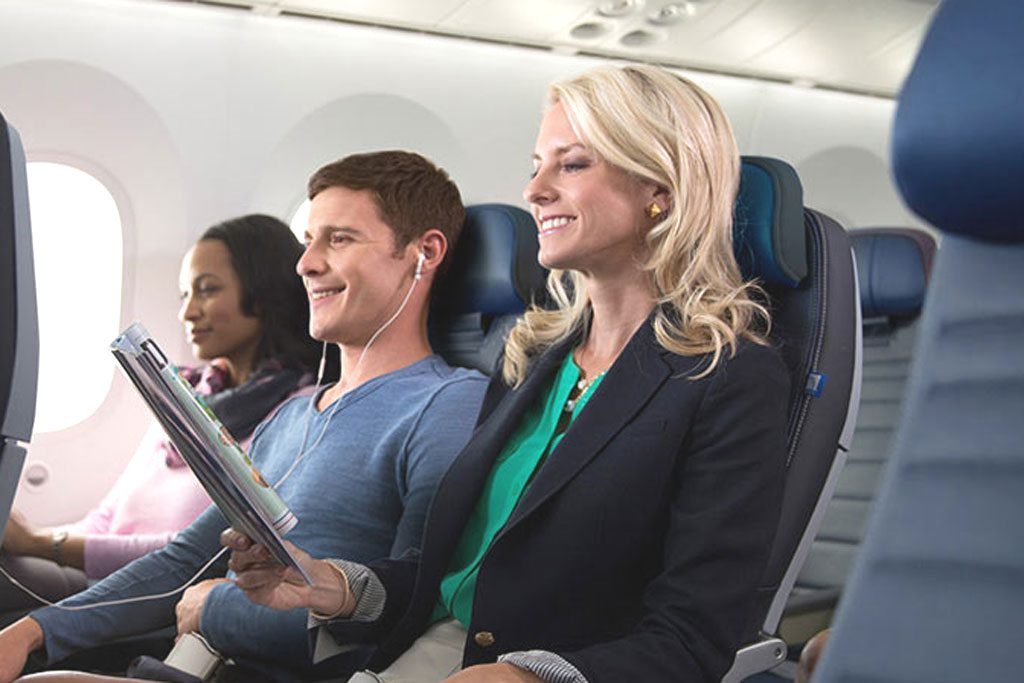Global airlines lobby rejects leaving middle seat empty
 IATA said even if implemented, keeping the ‘middle seat’ open will not provide the recommended separation for social distancing to be effective.
IATA said even if implemented, keeping the ‘middle seat’ open will not provide the recommended separation for social distancing to be effective.
The International Air Transport Association (IATA) does not support mandating social distancing measures that would leave ‘middle seats’ empty, but is open to new rules for the wearing of face coverings for passengers and masks for crew while on board aircraft.
The airlines lobby said this week evidence suggests that the risk of transmission on board aircraft is low. Mask-wearing by passengers and crew will reduce the already low risk, while avoiding the dramatic cost increases to air travel that onboard social distancing measures would bring.
Alexandre de Juniac, the IATA Director General and CEO said, “Airlines are fighting for their survival. Eliminating the middle seat will raise costs. If that cannot be offset with higher fares, the era of affordable travel will come to an end. On the other hand, if airlines can’t recoup the costs in higher fares, airlines will go bust. Neither is a good option when the world will need strong connectivity to help kick-start the recovery from COVID-19’s economic devastation.”
He said the safety of passengers and crew is paramount and the aviation industry is working with governments to re-start flying when this can be done safely. “Evidence suggests that the risk of transmission on board aircraft is low. And we will take measures—such as the wearing of face coverings by passengers and masks by crew—to add extra layers of protection. We must arrive at a solution that gives passengers the confidence to fly and keeps the cost of flying affordable. One without the other will have no lasting benefit,” de Juniac said.
IATA said calls for social distancing measures on aircraft would fundamentally shift the economics of aviation by slashing the maximum load factor to 62 pc. That is well below the average industry break-even load factor of 77 pc.
With fewer seats to sell, unit costs would rise sharply. Compared to 2019, air fares would need to go up dramatically—between 43 pc and 54pc depending on the region—just to break even.
In addition to face coverings as part of a new bio-security system, IATA recommends, temperature screening of passengers, airport workers and travelers. It also wants boarding and deplaning processes that reduce contact with other passengers or crew together with limiting movement within the cabin during flight.
IATA recommends more frequent and deeper cabin cleaning; and simplified catering procedures that lower crew movement and interaction with passengers.
IATA said even if implemented, keeping the ‘middle seat’ open will not provide the recommended separation for social distancing to be effective. Most authorities recommend one metre to two metres while the average seat width is less than 50 centimetres.
“The cabin environment naturally makes transmission of viruses difficult for a variety of reasons. That helps explain why we have seen little evidence of onboard transmission. In the immediate term, our aim is to make the cabin environment even safer with effective measures so that passengers and crew can return to travel with confidence,” de Juniac said.

 African Heads of state head to South Korea next week for Summit talks
African Heads of state head to South Korea next week for Summit talks
 Trading leads as main source of income for Ugandans
Trading leads as main source of income for Ugandans
 New leadership for bankers’ umbrella as total assets top $12 billion
New leadership for bankers’ umbrella as total assets top $12 billion
 Brussels Airlines to announce Nairobi service
Brussels Airlines to announce Nairobi service
 SITA promises enhanced travel experience after Materna acquisition
SITA promises enhanced travel experience after Materna acquisition
 Saudia’s 105 aircraft order stretches A320neo lead over rival Max
Saudia’s 105 aircraft order stretches A320neo lead over rival Max
